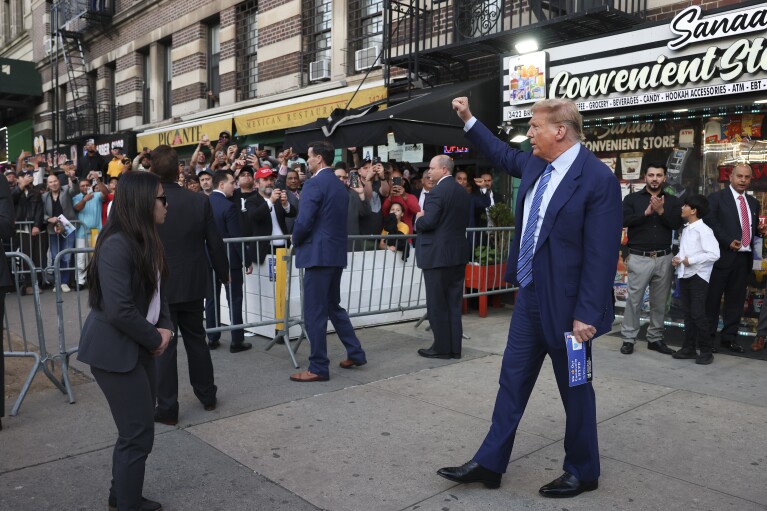In contrast to his 2016 campaign when Donald Trump challenged the GOP establishment and faced significant internal resistance during his 2020 reelection bid, he now, as the 2024 nominee, seems to have consolidated control over the Republican Party, which now appears more aligned with his policy platform, showing a readiness to support his campaign efforts actively. This shift indicates a significant transformation in party dynamics, with Trump’s influence cementing a more unified backing from previously contentious party structures.
Just the News reports that on Monday, the Republican National Committee officially endorsed Trump’s 2024 party platform, which places significant emphasis on economic and border security issues—themes that have consistently been central to Trump’s political agenda. The platform also incorporates other elements that underscore the deep integration of Trump’s personal policy priorities into the broader Republican agenda, highlighting how his influence has shaped the party’s direction and priorities for the upcoming election cycle.
Trump’s profound influence over the Republican National Committee (RNC) is now more apparent, especially since he played a significant role in selecting its leadership. Notably, the RNC appointed Michael Whatley, the former North Carolina GOP Chairman, as its chairman in March after Trump endorsed him for the position. Additionally, Lara Trump, Trump’s daughter-in-law, was appointed as co-chair. This level of influence marks a stark contrast to Trump’s initial foray into politics during the 2016 Republican primary. At that time, Trump frequently clashed with the RNC, accusing it of bias against him and challenging the party’s establishment.
During the crowded Republican primary, Trump distinguished himself from many conventional Republican candidates by challenging established GOP policies on free trade and foreign policy. His unorthodox approach led to frequent clashes with other candidates. After securing the GOP nomination, the party apparatus, albeit reluctantly, began to support Trump, who was an outsider and first-time political candidate. At the time, the RNC was led by Reince Priebus, who Trump later appointed as his chief of staff, though Priebus’s tenure in that role lasted only about six months.
In the 2020 election, Trump, as the incumbent president, faced only a few minor challengers, reflecting his strong hold on the GOP. During this election cycle, the RNC, then led by Ronna McDaniel, chose not to hold any primary debates, which is a move often interpreted as the party’s consolidation behind the incumbent.
Contrastingly, the 2024 primary cycle under McDaniel’s continued leadership featured a number of debates. Despite these debates being organized, Trump did not participate in any. The decision by Trump to abstain from the debates could be seen as a strategic move to maintain his established political stance and avoid the direct confrontations typical of primary debates.
“The GOP’s embrace of the Trump platform on Monday appears to signal that the policy fights between old guard Republicans and the America First contingent have been largely decided in favor of the latter camp,” Just the News reported. “Included in the platform are multiple chapters addressing cost of living, foreign competition, cryptocurrency and educational opportunities, most of which appear aimed at younger voters and clash somewhat with traditionalist Republican attitudes.”
Lara Trump issued a big warning ahead of the 2024 election that the organization won’t hesitate to prosecute anyone and everyone who is believed to have committed election or ballot fraud, or otherwise violated election laws. “This year is the year we do it,” Lara Trump said at Turning Point USA’s Detroit convention in June. “We are also sending a loud and clear message out there to anyone who thinks about cheating in an election: we will find you, we will track you down, and we will prosecute you to the full extent of the law.”



